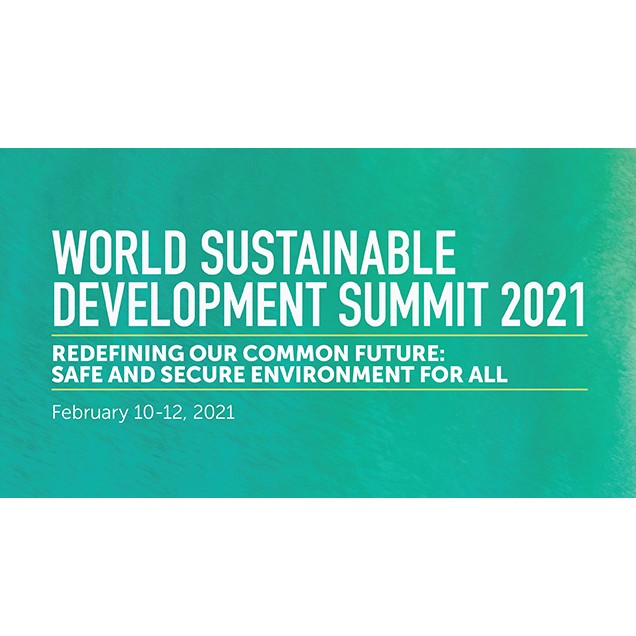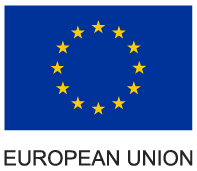
WSDS 2021 - Thematic Track, Day 3
New Delhi, India | Friday, February 12, 2021
Planning Cities for a Sustainable Future
COVID-19 has paused the whole world and inter alia
forced all of us to stop and to re-think how our cities should function. It has reminded
us that global challenges need local long-term solutions that are equipped to support
liveable and healthy cities. Urban areas are core drivers of social and
economic growth, that contribute about 60% to the global GDP. However, cities
also account for over 60 % of the resource use. Moreover, cities face a number
of urbanization challenges including air pollution, high levels of noise,
improper waste management, and poor water quality that pose serious threats to
the quality of life. Climate change impacts, such as extreme weather events
also cause disruption in urban services and damage to infrastructure
facilities. Thus, cities must seize the opportunity to resolve these divergent
challenges for a sustainable future. Cities
across the globe have addressed these challenges through
various planning strategic approaches over the years, and
in order to pave way for a sustainable future, learning from these past
experiences and transforming the way we build and manage our urban spaces
is critical. The need of the hour is thus to have a holistic approach
towards the planning and management of cities that can integrate best practices
and address the needs of the cities sustainably.
Towards this path, European and
Indian cities can collaborate and develop sustainable urban solutions together. For instance, the “EU-India Strategic Partnership: A Roadmap
to 2025” between
the European Union (EU) and Government of India encompass ambitious objectives to support smart and sustainable cities and promote investments in sustainable
urbanization, climate action and disaster risk reduction. It also addresses
challenges for ensuring effective solid waste management, developing effective
water supply and sewage systems, and innovation in housing. This also aligns with the Smart Cities Mission and the ClimateSmart Cities Assessment Framework by the Indian government which
focuses on aspects, such as waste and water management, green buildings,
mobility, air quality and urban planning to enhance the liveability and
sustainability of cities.
For achieving the global targets of Sustainable Development goals, a holistic planning approach is required. This session thus aims to provide a platform for policymakers and practitioners to discuss their past experience with addressing different urbanization challenges through strategies, policies, governance mechanisms, planning and implementation. This session will also focus on global partnerships and initiatives at the metropolitan scale that can be leveraged for sustainable urbanization, and help in improving quality of life, protecting the environment and biodiversity, and enhancing resilience towards pandemics and other global challenges.
|
AGENDA |
|
|
Session
1: Partnerships and Initiatives for Sustainable Urbanization |
|
|
5 minutes |
Opening Remarks by Mr. Sanjay Seth, Senior Director,
Sustainable Habitat Program, TERI |
|
7 minutes |
Address by Mr. Hitesh Vaidya, Director, National
Institute of Urban Affairs (NIUA) |
|
7 minutes |
Address by Mr. Michel Mouchiroud, Partner Instrument Coordinator, EU Foreign Policy Instruments, Regional Team Asia & Pacific, Delegation of the European Union to Thailand |
|
7 minutes |
Address by Mr. Jostein Nygard, Senior
Environmental Specialist, World Bank and Dr. Michael Bucki, Head of Section,
Counsellor, Delegation of the European Union to India |
|
7 minutes |
Surat’s Initiatives by Mr. Banchhanidhi Pani, IAS, Commissioner, Surat Municipal Corporation, Gujarat |
|
7 minutes |
Kochi’s Initiatives by Mr. M Anil Kumar, Mayor of Kochi,
Kerala |
|
Session
2: Panel Discussion on Planning Cities for a Sustainable Future |
|
|
30 minutes |
Moderator: Ms. Kamilla Kristensen Rai, Counsellor, Delegation of the European Union to India ● Ms. Sriparna Iyer, Key Expert, EU–India Urban Partnership Support Project, Consortium led by AETS with IPE Global and KPMG ● Ms. Parul Agarwala, Country Programme Manager, UN-Habitat India ● Ms. Vaishali Nandan, Project Director, GIZ India ● Mr. Emani Kumar, Executive Director, ICLEI South Asia ● Ms. Rupali Deshmukh, Senior Coordinator, Business Development and Marketing, IVL Swedish Environmental Research Institute |
|
10 minutes |
Q&A and Discussion |
|
5 minutes |
Closing Remarks by Mr.
Sanjay Seth and Ms. Kamilla Kristensen Rai |


